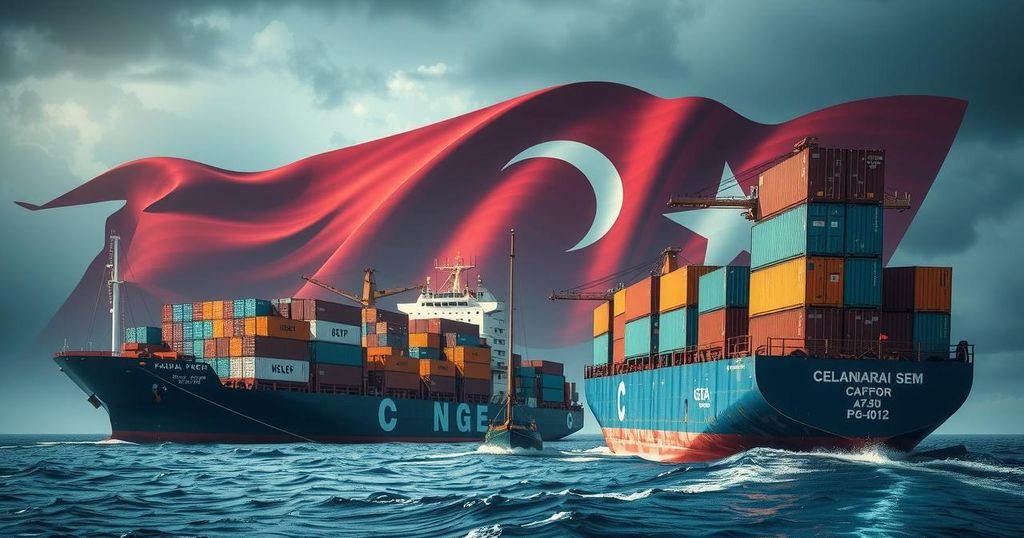India and Bangladesh’s Trade Tensions: Businesses Brace for Impact
India and Bangladesh have recently implemented trade restrictions, creating economic uncertainties for businesses in both countries. Bangladesh’s curtailment of cotton yarn imports from India followed India’s sudden termination of transhipment facilities for Bangladeshi goods. Heightened diplomatic tensions, political crises, and public sentiment are escalating the situation, posing risks to the economic relationship between the two nations.
Businesses in India and Bangladesh are now assessing the ramifications of newly imposed trade restrictions between the two nations, following escalating diplomatic tensions. Last month, Bangladesh took a significant step by restricting imports of cotton yarn from India via land routes. This move aimed to protect local industries from competition, especially from India’s cheaper exports.
Shortly before that, India halted transhipment facilities for Bangladesh, which had allowed the latter to transport goods to third countries through Indian ports. The Indian government cited congestion as the reason for this decision, but it has raised concerns about the relationship between the two neighbors. The ongoing political crisis in Bangladesh has also contributed to the worsening ties; former Prime Minister Sheikh Hasina is currently in exile in India after being ousted during protests.
Since her departure, Dhaka has requested Hasina’s extradition to face serious allegations, including crimes against humanity and corruption. While she denies these accusations, India has not issued a formal response to the extradition demands. Furthermore, India’s criticism of the treatment of Hindu minorities in Bangladesh has fueled tensions, prompting the Bangladesh government to reject claims of persecution, labeling them as politically motivated.
The consequences of these trade restrictions are already being felt by businesses. Firms depending on imports of yarn for clothing production are looking at alternative, albeit slower, methods to source materials since land routes are now limited. In 2024, Indian exports of cotton yarn to Bangladesh were valued at $1.6 billion, of which a substantial part was facilitated through land ports. Anis Ahmed, head of MGH Group, noted that the closure of the India route puts a serious strain on the fast-fashion export sector.
As Bangladesh struggles with limited air freight capacity, transferring goods directly is becoming increasingly challenging. The previous transhipment route provided a fast and cost-effective way to reach markets in Europe and the US, which is now significantly slowed down. With backdrop tensions in geopolitics and trade, the Indian government’s decision to cut the transhipment facility has been interpreted as a reaction to comments made by Muhammad Yunus regarding regional economic dynamics during his visit to China.
Yunus described Bangladesh as a vital trade corridor for India, but his comments raised alarms in New Delhi, especially concerning the strategic Siliguri Corridor that links India’s north-east states. Analysts on both sides are concerned that this geopolitical chess game could further destabilize relations, which remain fragile following the series of confrontational diplomatic moves.
Simultaneously, public sentiment is also undergoing a transformation due to increased visa restrictions for Bangladeshi citizens traveling to India. Reports indicate that the number of issued tourist and business visas has plummeted over 80% since Hasina’s political fall. Shyam Saran, a former Indian diplomat, highlighted the sensitivity around the extradition issue, stating that handing over Hasina could elicit unwanted consequences for India.
Now, amid these growing tensions, the Indian clothing manufacturers’ association is advocating for a ban on Bangladeshi garments, a move that many experts believe could be detrimental to all involved. Debapriya Bhattacharya, an economist, underscored the need for Bangladesh to reassess the transit facilities previously granted to India in light of the current tensions.
As the situation continues to evolve, there is a historic context that must be acknowledged. Bangladesh and Pakistan are also reconnecting at a time when tensions between India and both countries are on the rise. While there does not seem to be an immediate concern over Bangladesh’s budding relations with Pakistan, any perceived coordination that could upset India’s interests would certainly raise alarms in New Delhi.
In summary, the recent trade restrictions between India and Bangladesh underscore a complex web of geopolitical tensions and economic impact. With rising discontent over visa policies and accusations of minority persecution, both countries are in a precarious position, potentially compromising valuable trade relationships. As businesses brace for the fallout, analysts warn that continued friction between these neighboring nations could have serious long-term consequences for their economic ties.
Original Source: www.bbc.com




Post Comment